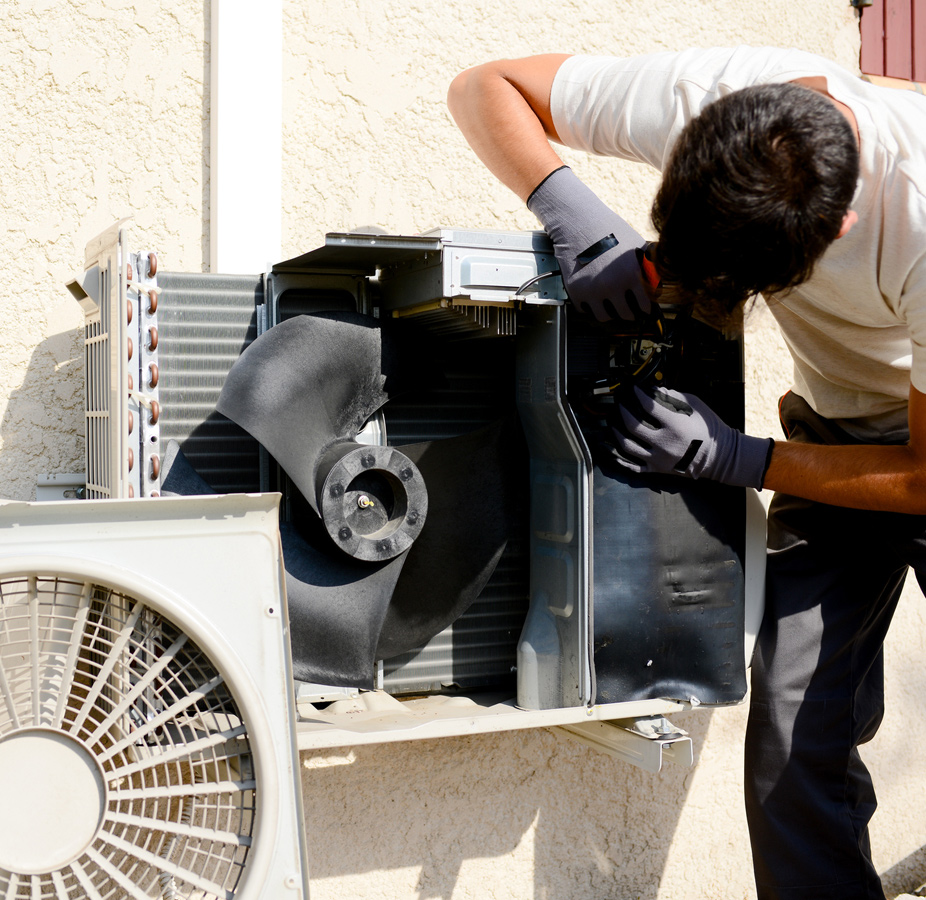How A/c Boosts Convenience and Air Top Quality in your house
The combination of air conditioning systems in household settings plays a crucial function in boosting both comfort and air high quality. The effects of air conditioning extend beyond plain comfort; they touch on energy performance and overall health and wellness.
Advantages of Cooling
Air conditioning offers countless benefits that extend beyond simple comfort, substantially boosting interior atmospheres. Air conditioning systems filter and flow interior air, getting rid of dirt, irritants, and toxins, therefore adding to a much healthier living room.
In addition, cooling plays a critical role in moisture control. Too much moisture can cause mold and mildew growth and architectural damages, while cooling systems assist preserve optimal humidity degrees. This not just secures residential or commercial property but also boosts convenience by minimizing the clamminess commonly related to high humidity.
Power performance is one more vital benefit. Modern cooling devices are created to operate extra successfully than older designs, decreasing energy usage and lowering energy bills. Programmable thermostats enable users to maximize cooling timetables, guaranteeing that power is utilized judiciously.
Last but not least, air conditioning adds to enhanced performance. Air Conditioning Brisbane. In work environments, a regulated climate can boost focus and performance, underscoring the relevance of air conditioning in both residential and commercial setups
Just How A/c Improves Comfort
Boosted comfort in indoor settings is one of one of the most substantial advantages supplied by air conditioning systems. These systems successfully manage indoor temperature levels, ensuring a constantly positive atmosphere no matter exterior climate condition. By preserving a secure temperature level, cooling allows passengers to participate in day-to-day activities without the discomfort commonly caused by excessive warm or moisture.
In addition, cooling systems add to improved sleep high quality. A cooler setting contributes to better sleep, as it helps lower the body's core temperature, signaling that it is time to rest. This is especially crucial throughout the warmer months when high temperature levels can interfere with rest patterns.
Additionally, modern air conditioning units typically come furnished with programmable thermostats, making it possible for customers to tailor their convenience degrees according to individual preferences and routines - Air Conditioning Brisbane. This versatility not only enhances comfort but also promotes power efficiency, as systems can be set to run just when required

Enhancing Indoor Air High Quality
A significant advantage of air conditioning systems is their capacity to enhance interior air quality. By distributing and filtering air, these systems remove airborne toxins, site allergens, and pollutants, resulting in a much healthier living environment. High-efficiency particle air (HEPA) filters, frequently used in modern-day air conditioning systems, effectively capture dust, plant pollen, mold spores, and family pet dander, therefore decreasing the visibility of toxic irritants that can worsen respiratory problems and allergic reactions.
Additionally, a/c systems can aid reduce the impacts of exterior pollution. By preserving a closed interior setting, they restrict the influx of external allergens and particulate issue. This is specifically beneficial for individuals with asthma or other respiratory system conditions, as enhanced air high quality can add to far better health outcomes.
Additionally, some sophisticated a/c designs come furnished with ultraviolet (UV) light modern technology, which better detoxifies the air by neutralizing bacteria and viruses. Regular upkeep of these systems, consisting of filter substitute and cleansing, is important to ensure optimal content performance and air quality. Generally, the function of a/c in improving indoor air quality can not be overstated, making it an indispensable element of modern home comfort.
Managing Moisture Degrees
Efficient management of moisture degrees is vital for preserving a comfortable and healthy interior atmosphere. High humidity can result in pain, promoting a sensation of stickiness and making it difficult for the body to regulate its temperature level. This problem can likewise create a perfect breeding ground for mold and mildew, allergen, and various other allergens, ultimately influencing indoor air quality.
Air conditioning systems play a significant function in managing humidity. By cooling down the air, they also evaporate it, extracting excess dampness as the air passes over cold evaporator coils.
In enhancement to air conditioning, using dehumidifiers can further help in taking care of humidity degrees, particularly in areas vulnerable to excess moisture, such as cellars or bathrooms. Routine upkeep of air conditioning systems, including cleansing and replacing filters, can improve their performance in moisture control. By successfully taking care of humidity, homeowners can produce a much more positive space while lessening wellness risks connected with inadequate indoor air quality.
Energy Performance and Sustainability
Cooling systems' energy effectiveness is progressively critical in today's environmentally conscious culture. As homes look for to reduce their carbon footprints, the demand for energy-efficient a/c devices has actually risen. These systems are designed to use less energy while preserving ideal interior convenience, thereby lowering utility bills and reducing environmental effect.
Technical innovations have actually caused the advancement of high-efficiency models that make use of eco-friendly refrigerants and progressed heat exchange procedures - Air Conditioning Brisbane. Equipments with higher Seasonal Energy Efficiency Ratios (SEER) and Power Effectiveness Ratios (EER) not only execute far better however also add to a lasting future by decreasing greenhouse gas emissions
In addition, integrating smart modern technology into air conditioning systems enables more precise temperature level control and energy monitoring. House owners can adjust setups remotely, allowing them to enhance power usage and mitigate waste.
In addition, routine upkeep and appropriate installment are crucial for guaranteeing web that cooling systems run at peak effectiveness. This dedication to energy performance not only improves the longevity of the system however also lines up with more comprehensive sustainability goals, inevitably benefiting both the specific homeowner and the atmosphere.
Conclusion
